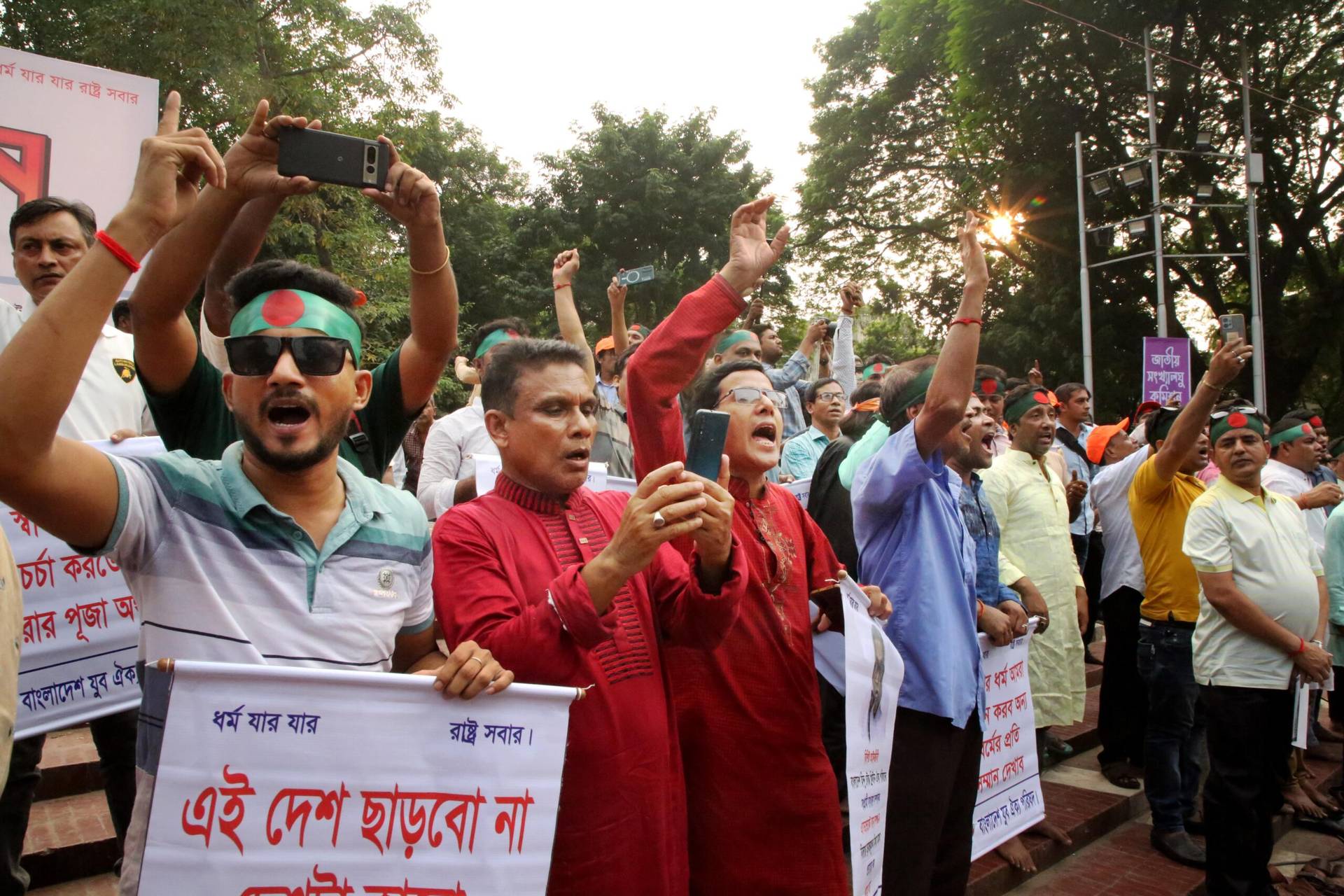Ahead of the upcoming presidential election on March 19 on East Timor, a small island nation in Southeast Asia, the Catholic Church has clarified that it does not support any candidate after at least two of the contenders used Catholic symbolism in their campaigns.
Colonized by the Portuguese in the 16th century, East Timor is one of the most Catholic countries in the world, with 97 percent of the population claiming membership in the Catholic Church. Religion, along with the Portuguese language, were two important elements of political resistance during the 24 years of Indonesian occupation, which began right after independence from Portugal in 1975.
The church has been playing a fundamental role in rebuilding the country since it regained full freedom in 2002, according to Father Antonio do Carmo, a theology professor at the Superior Philosophy and Theology Institute of Dili.
The church has an especially strong presence in the educational system and in providing relief to a poverty-stricken people.
“It also has a fundamental role in raising awareness and promoting justice and freedom,” do Carmo said.
The church’s social relevance in a young country like East Timor has put it at the center of the political arena.
“No matter who wins an election, the elected president will always have to work with the church, due to its social relevance,” said anthropologist Josh Trindade.
That is why some of the current presidential candidates have been trying to portray themselves as especially connected to Catholicism.
One of them is former priest Martinho Gusmão. He had asked to leave the priesthood at the beginning of 2020, something that was conceded to him in November 2021. The East Timorese church publicly announced at that time that Gusmão “would live as a common layman in society, although the sacrament of priesthood that he received had not been canceled.”
Despite his new condition, Gusmão continued to use his previous ties with the church during his pre-campaign. According to the Portuguese news agency Lusa, he even printed banners with a picture of Pope Francis. He also said that he was endorsed by the country’s clergy.
On March 1, one day before the official inauguration of the presidential campaign, the bishops’ conference issued a second statement about Gusmão, clarifying that he had left the priesthood for good.
Signed by the Archbishop Virgílio do Carmo da Silva of Dili, the conference’s vice president, the declaration mentioned that Cardinal Luis Antonio Tagle, Prefect of the Congregation of the Evangelization of Peoples, sent a letter to Gusmão in October of 2021 recommending that he should live “an exemplary life as a lay person” and keep working for the Christian community.
By no means, Carmo da Silva emphasized, did Tagle’s letter “explicitly encourage [him] to pursue a political life or to be a political candidate.”
The bishops’ conference’s statement also said that Gusmão “has not received any personal letters from Pope Francis.”
After that, Gusmão told UCA News that he was not doing anything wrong and accused the Vatican representative in Timor of forcing the bishops to provide special explanations regarding his clerical status.
Another candidate who has been using Catholic rhetoric is Isabel Ferreira, the wife of the current Prime Minister José Maria de Vasconcelos, known as Taur Matan Ruak.
“She has been continually mentioning her personal connection with the church and talking about her faith,” Trindade said.
Do Carmo told Lusa that religious symbols and references are “sacred and should not be desecrated for the candidates’ political or personal interests.”
“The bishops’ conference’s president has already announced that no candidate should use religious symbols or aspects in campaigning. The bishop has publicly said so, and sent letters to the parishes, to Christians and to the candidates,” he told Lusa.
In a pastoral letter about the elections, the bishops asked Catholics to take part in the voting in good conscience, said do Carmo.
“Many politicians take advantage of the people’s religious sentiment in order to gain their sympathy. Unfortunately, many times they obtain what they want, given that simple people believe they are good Catholics and vote for them,” he said.
There are 16 presidential candidates taking part in the current elections, including the former president and Nobel Peace Prize laureate José Ramos-Horta. It is the largest number of candidates ever in a presidential election in East Timor.
After a severe economic decline intensified by the COVID-19 pandemic and the destruction provoked by heavy storms in April of 2021, the East Timorese people hope that a new president will help the country to resume development, said Father Domingos Alves, formerly the dean of the Superior Philosophy and Theology Institute of Dili.
“There have been severe problems of governability. The people need a new leader who will give them hope again,” he told Crux.
Although democracy is still something new in East Timor, the people already have the ability to discern and can make reasonable choices, Alves added.
Do Carmo said that political instability has been holding the country back. “Economic growth has been too weak. The youth need to have more opportunities,” he explained.
The official presidential campaign will end on March 16, one day after the TV debate. The second round between the two candidates with the highest first-round votes will take place on April 19.












